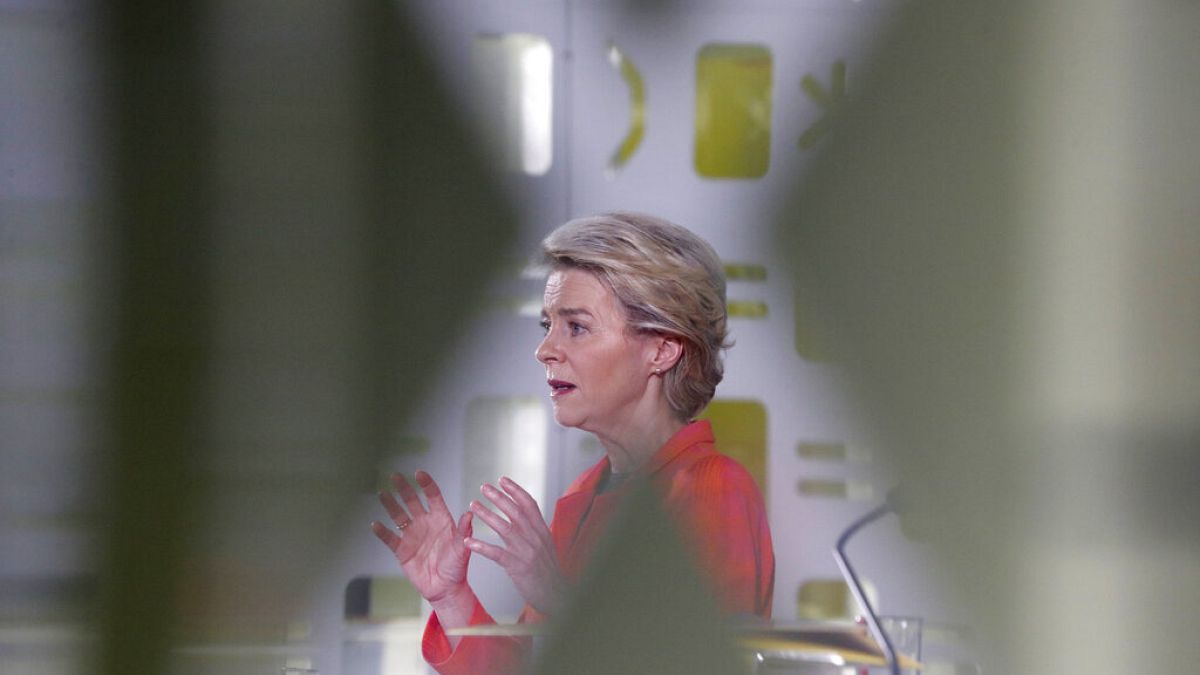A dozen EU countries have had their COVID recovery spending plans approved, paving the way for funds to arrive later this month.
A dozen EU countries have had their COVID recovery spending plans approved, paving the way for funds to arrive later this month.
The plans outline the projects and reforms each country has committed to in exchange for their share of the €672 billion EU fund.
Austria, Belgium, Denmark, France, Germany, Greece, Italy, Latvia, Luxembourg, Portugal, Slovakia and Spain all had their plans approved on Tuesday.
They were given the green light by the 27 economic and finance ministers of the EU, sitting on the Economic and Financial Affairs Council.
"This is excellent news," said EU Commission Vice-President Valdis Dombrovskis. "We have come a long way in preparing these ambitious plans. But this is only the start. Putting all plans into proper and rapid effect will be vital."
The EU's recovery fund was agreed on last July with the goal of kick-starting the post-coronavirus recovery.
Countries are allowed to request grants but also loans, which must be repaid individually. On the other hand, grants will be repaid collectively by the whole bloc through the common annual budget. This difference led most member states to choose only grants and eschew loans.
The money is currently being raised by the European Commission on the financial markets, where EU bonds have enjoyed a very positive welcome by investors, with transactions being oversubscribed several times their initial value.
So far, the executive has raised €35 billion with a goal of reaching at least €80 billion by the end of 2021. Brussels will continue issuing bonds and distributing funds until 2026.
All borrowing must be repaid by 2058 at the very latest.
A European Commission spokesperson said on Tuesday they were confident in the ability to raise the funds needed.
Following the EU's green light, individual countries have to sign bilateral financing agreements with the European Commission in order to receive the first tranche of EU funds, set to represent 13% of their total allocation.
This amount will be disbursed over the two months after the signature. For example, in the case of Italy's €191.5 billion recovery plan, the executive will first disburse €24.9 billion.
The European Commission spokesperson said some financial agreements might take extra time to be signed due to national considerations. The official, however, underlined that a certain group of countries, which he did not name, could be ready to receive funds by the end of July.
Growing doubts over Hungarian plan
Brussels has received 25 national recovery and resilience plans. Only Bulgaria and the Netherlands are missing. Out of these 25 plans, 16 have been endorsed by the Commission and 12 by the EU Council. This means the council has yet to approve the packages of Cyprus, Croatia, Lithuania and Slovenia.
The Commission is currently assessing nine plans: Poland, Czech Republic, Ireland, Estonia, Finland, Sweden, Romania, Malta and Hungary.
Doubts over the Hungarian plan are growing after the Commission missed the deadline for its approval. Budapest sent its national programme, requesting a total of €7.2 billion in grants, on May 12, setting off two months of internal evaluation by the EU executive.
But on Monday, July 12, the Commission did not publish its assessment and opted instead for extending the two-month deadline.
"The Commission has not yet concluded its assessment of the Hungarian recovery and resilience plan," a Commission spokesperson confirmed on Monday, without explaining the exact reasons behind the setback.
The executive says it is in contact with the Hungarian authorities, exchanging observations and sending written questions about certain aspects of the national plan. The latest round of replies from Budapest arrived on Friday, the spokesperson added.
"The documents related to the Hungarian recovery [plan] are excellent documents, there is no real reason for any institution of the European Union to reject the Hungarian plan," Péter Szijjártó, Hungary's foreign affairs minister, said on Monday.
"Negotiations are taking place. Mixing European politics and finances would obviously be unacceptable if that were the case,"
The decision to withhold the Hungarian plan's approval comes in the midst of a political controversy surrounding a new law passed by the country's parliament whose stated purpose is to fight paedophilia and protect children's wellbeing.
But the legislation made headlines when a new amendment was introduced, banning the portrayal of homosexuality and sex reassignment in school education material and TV programmes addressed to people under 18 years of age.
The text was immediately condemned as anti-LGBTIQ and lambasted for conflating paedophilia and homosexuality.
A majority of EU countries called it a "flagrant form of discrimination based on sexual orientation, gender identity and expression". President Ursula von der Leyen said the legislation was "shameful" and vowed to open an infringement procedure should it enter into force.
Last week, the European Parliament overwhelmingly voted in favour of a non-binding resolution expressing "serious concerns that the Hungarian Recovery and Resilience Plan may not comply with EU law". MEPs also asked the Commission to immediately activate a conditionality mechanism that links EU funds with respect for the rule of law.
While the anti-LGBTIQ amendment and the recovery plan are not connected – the law passed weeks after the plan was submitted – the political outrage has forced the two issues to converge, putting the Commission in a difficult position where a negative evaluation could add fuel to the anti-Brussels rhetoric of Hungary's Prime Minister Viktor Orbán.
